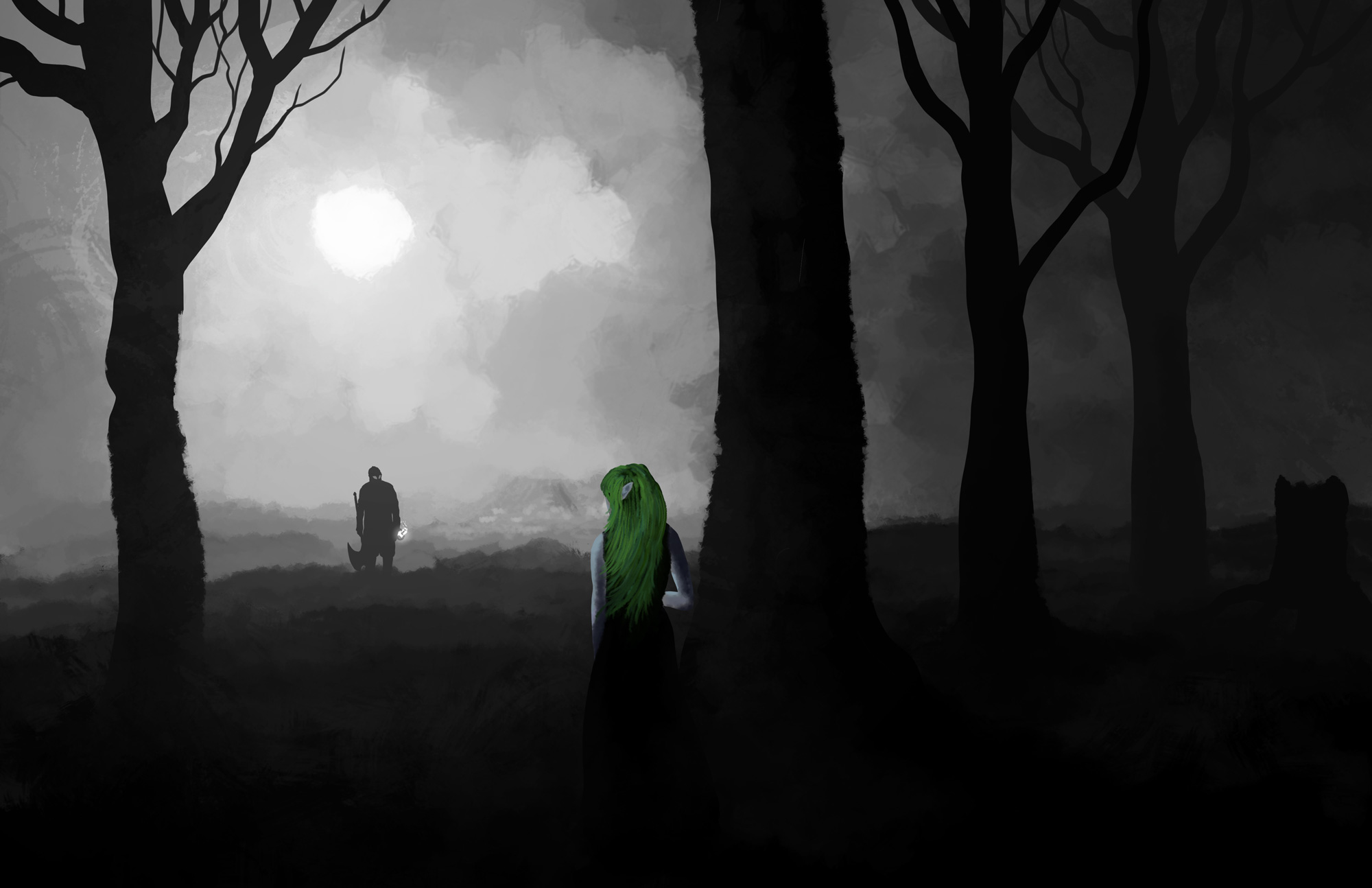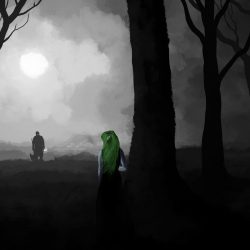The Exile
“I have come one step away from everything.
And here I stay, far from everything,
one step away.”
― Antonio Porchia, Voices
There have always been legends of fairies, elves, and other mythical creatures living among humanity, but never have the Hidden People been closer to their human brethren than Iceland. The Hidden People, known as the Huldufólk, were so well known by the people who lived there that the Icelanders didn’t just believe in their existence — they knew, for certain, they existed. Even now, the Huldufólk are so embedded in Icelandic culture that centuries since their peak influence, over half of Icelanders think it’s possible the Huldufólk live among them, and their government hires special surveyors to make sure public building projects steer clear of potential Huldufólk sites.
Those Icelandic Huldufólk are legendary among Hidden People around the world, which is why the name has stuck (at least in the West). They also serve as a dire warning for the Hidden.
Exile
The state of forced absence from one’s home. Whether or not one believes the Blessed or Banished’s stories of why this Exile began, the Hidden People’s separation from humanity is obvious and palpable to those living it. The Hidden Born take the brunt of it, needing to spend their hard earned Belief to be visible in the human world at all, but never able to appear as their true selves. The Stolen have it the easiest, able to appear as themselves (as they were before joining the Hidden People) — but this advantage is due to the self-imposed nature of their exile. Regardless of the reason, or ways some of the Hidden People still have to influence the world, the message appears to be clear: the world of humanity belongs to humanity. While the Hidden People can find ways to influence their world, they are interlopers.
The Hidden People who lived in Iceland were descended from those who had grown tired of their exile-in-place among humans, leaving the mainland for an uninhabited volcanic island, full of harsh forces unfriendly to the humans. They lived in complete isolation for centuries, until the Norse arrived. As the North Men settled Iceland, the Hidden People, who had moved to escape them in the first place, made their presence known, showing their clear displeasure whenever the Icelanders intruded on their territory. Unlike other Hidden People who had at least made some other pretense when exerting overt control over humanity — see the legends of dragons, will o’ wisps, and fairies arriving every Samhain expecting a gift — the Huldufólk were much more direct. They didn’t make up myths for the Icelanders to believe, but instead told their own tales. Despite the limitations on how they could appear to humans, they made no secret of their true nature when they chose to do so.
Most people know familiarity breeds contempt; sometimes, contempt also breeds familiarity. Over the years, the Huldufólk tried their best to intimidate the Icelanders — but just like humans, the Huldufólk fall in love, and as individual Huldufólk fell in love with Icelanders, creating Lost Twins, their cultures began to merge. Not only did the Icelanders believe in the Hidden People more and more, but the Huldufólk in turn began to absorb Norse Culture.
Unfortunately, there was another side effect. As more Icelanders believed in the existence of the Huldufólk, the Huldufólk were able to have less and less effect on the world. Sure, they had essentially forsaken the need for Belief to power them when they moved to a desolate island, but to be surrounded by humans, who believed in them, yet be next to powerless to affect the world, shocked the Huldufólk. The Icelanders continued to believe in the Hidden People’s existence, but as their ability to affect the world dwindled, the glass wall between their kind became next to impossible to breach.
The Huldufólk of Iceland dispersed all over the world, just as the Hidden People had done in ancient times. They brought with them the culture of the Norse they’d lived with, a name that’s stuck in many parts of the world, and a dire warning of what happens when the Hidden People reveal themselves too much to humanity.
Familiarity Breeds Disbelief
“I refuse to prove that I exist,” says God, “for proof denies faith, and without faith I am nothing.”
“But,” says Man, “the Babel fish is a dead giveaway, isn’t it? It could not have evolved by chance. It proves that You exist, and so therefore, by Your own arguments, You don’t. QED.”
“Oh dear,” says God, “I hadn’t thought of that,” and promptly vanishes in a puff of logic.
Douglas Adams, The Hitchhiker’s Guide to the Galaxy
The Hidden People aren’t quite sure why the effect happens, but the results are clear: the more the Huldufólk overtly affect humanity, the less effective the Belief of humanity will be for the Huldufólk. Since Belief is what fuels the Hidden People’s ability to affect the world, if it degrades they’re left powerless — silent watchers cut off from the world.
The religious theory on this is that God is enforcing the Exile — while They allow the Angels and Demons to use the Hidden People to influence the world, as the Huldufólk take overt actions to mess with Creation, the Lord’s patience grows thinner and thinner.
There’s another, more pragmatic explanation: if it’s humanity’s Belief that powers the Huldufólk, what good is belief in the face of proof? There’s a reason there’s no church of gravity, the speed of light, or bullets (though bullets receive a strange amount of reverence in some places). If something can be easily observed, people don’t believe in it — they simply know it to be true. Meaningful belief requires room for doubt, otherwise believing isn’t a choice.
Additionally, for the Hidden People who work for the Patrons, the Belief they foster in humanity revolves around the ideals of their factions. The Friends of God gain belief when they convince humans that people are generally good and watch out for each other; the Profane gain belief when they convince humans to be afraid of each other and the worst parts of humanity. Belief is based on what humans believe about themselves and those around them, and their belief is part of the choices they make. If humans are simply being manipulated by invisible people wielding cosmic powers, how important can their decisions really be?
Measuring Strain to The Exile
Though the Blessed and Banished continue a subdued war over the future of humanity, threats to the Exile — including Rogue Huldufólk attempting to turn themselves into Urban Legends — are what keep them in the same society. As part of that united front, someone (presumably the Patrons), gifts the Huldufólk with a tool to track damage to The Exile.
That symbol of strain on The Exile is different from place to place. In some places it may be a small tree, where leaves fall when The Exile is strained; it may be an hourglass where the sand only falls when the Exile has been damaged; it might be an old analogue clock showing the seconds from Midnight, Doomsday Clock style. In whichever form, this device of tracking The Exile’s strain appears, and is one of the main reasons the Huldufólk meet. The device itself is generally maintained by the Agents of Balance.

